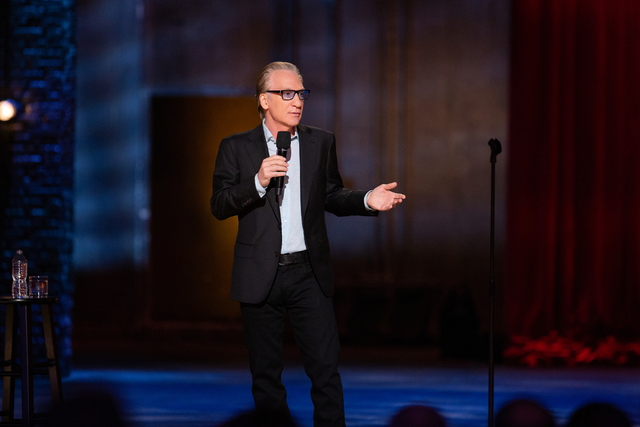
Bill Maher fans, get ready to clap your heart out. The Real Time host, whose new HBO stand-up special #Adulting airs April 15, is a self-identified liberal who likes to complain about political correctness. And he has made a career out of what Seth Meyers dubbed clapter. As described by Tina Fey, way back in 2008, clapter happens “when you do a political joke and people go, ‘Woo-hoo.’” Donald Glover later explained that the clapping means “‘so true, yes, so, so true.’ But what you did isn’t funny; they’re just clapping and laughing to be on the right side of history.”
Clapter comedy threatened to overtake stand-up during the Trump era, as audiences weary of unintentional black humor in the news turned to pop culture’s clear-eyed court jesters just to feel sane. But recently, catalyzed by a fiery debate surrounding free speech, hate speech, and cancel culture, clapter has metastasized into something even more corrosive—something that goes beyond the actual substance of comedy’s much-discussed woke wars. As in all other corners of our polarized society, comedians have defaulted to binary ideas about right vs. wrong, our side vs. their side, justice warrior vs. truth-teller. And that impacts voices on all sides of these issues.
From provocateurs like Dave Chappelle to progressives like Hannah Gadsby, comics on the world’s biggest stages are allowing the faceless “haters” who criticize them on social media to consume their work. As these conflicts escalate, the result is even more attention for these stars. That isn’t just bad for public discourse—it’s bad for a mainstream comedy landscape that too rarely spotlights the many voices doing subtler, gentler, weirder, or more experimental work.
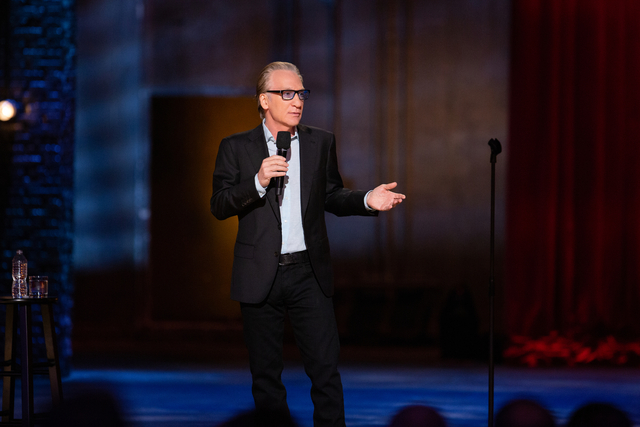
In defending their ideas and their work, too many of the most famous stand-ups have become smug, narcissistic, self-righteous, petty. Maher epitomizes this exhausting phenomenon. As excruciating as some of his opinions are (on R. Kelly: “The music didn’t rape anybody”), what’s most unappealing is the manner in which he delivers them—as though he’s the only sane, smart person in the world. The more public pushback he gets, the more sanctimonious he becomes. “We never stand up to the people who wake up offended and live on Twitter,” Maher complains in the special, as though his Real Time monologues weren’t engineered specifically to inflame that crowd and rally his own social-media surrogates. This sort of sentiment is common among comedians of his cohort: rich, famous, middle-aged, liberal men with ride-or-die fandoms who rail against cancel culture as a threat to their free speech, despite the fact that said culture doesn’t even have the power to prevent Louis C.K. from winning a Grammy a few years after he admitted to sexual misconduct.
Maher’s whiteness shields him from a certain strain of unconsciously racist backlash that others might face. But the vagueness of his targets also separates him from someone like Dave Chappelle, the superstar who has become the most prominent face of the free-speech-at-all-costs contingent. There’s plenty to say—most of which has already been said—about the transphobic streak in Chappelle’s comedy. In discussing his style more than his content, I don’t mean to minimize discussions around his attacks on a vulnerable minority that right-wing lawmakers are currently attempting to legislate out of existence. But Maher’s righteousness reminded me of Chappelle, different though he may be.
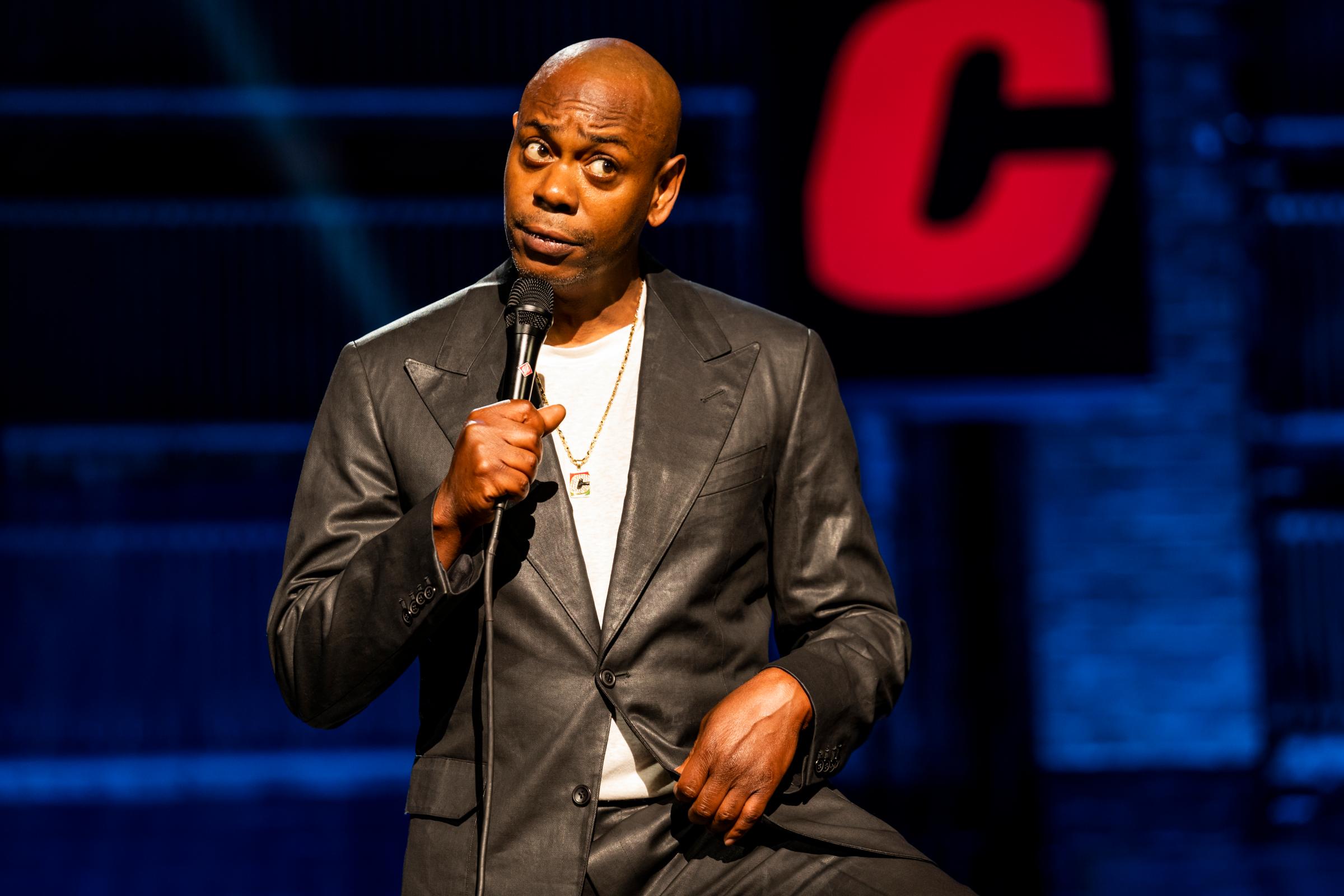
Chappelle isn’t above pandering to audiences thirsty for provocation, but he’s overall a more complicated thinker. His tone veers between openhearted empathy and viciousness, drawing attention to contradictions in viewers’ own opinions on fraught issues and leaving room for what is often productive ambiguity around what he actually believes. And when he speaks on topics about which he’s “not supposed to” have a take, there is often reason to be glad he did. But in last year’s The Closer, which Chappelle frames as his response to the LGBTQ community, the tactic backfires. An emotional anecdote about his friendship with the late trans comedian Daphne Dorman is undermined by lazy stereotyping and faulty logic that often positions queer or trans identity and Black identity as mutually exclusive. “Gay people are minorities,” Chappelle says, “until they need to be white again.”
What has stuck in Chappelle’s craw, as he admits in the special, is the accusation that he’s “punching down” at trans people. That hurts because—since they’ve labeled him transphobic and since he, too, represents an oppressed community—he feels like the injured party. If he is going to show trans people kindness, then they need to show him kindness first. “Empathy is not gay,” he says. “Empathy is not Black. Empathy is bisexual. It must go both ways.” It’s a surprisingly sweet joke, but one that fails to acknowledge his long history of painting the trans community, with the exception of one trans woman who met Chappelle on his own terms, as monolithic. As far as Dave Chappelle is concerned, it seems, the most important thing about trans people is that they’re angry at Dave Chappelle. From there, it’s a short leap to responding to critical questions from teens at his alma mater with a reminder that, at least for now, “I’m better than all of you.”
Such sanctimony isn’t limited to comedians bent on offending the politically correct. My personal beliefs, for what it’s worth, align more closely with those of Hannah Gadsby, the Australian comic who broke through in the U.S. with a 2018 Netflix special, Nanette, that connects her experiences in comedy with the trauma she’s suffered as a woman and a lesbian. Gadsby’s particular talent as a comedian is synthesis. She can pull together a seamless set, incorporating a wide range of topics and emotional beats, by weaving in callbacks, refrains, and meta-commentary—and she knows this so well that she flaunts it, outlining at the beginning of both Nanette and 2020’s follow-up Douglas what she’s going to do and how she’s going to do it, like Babe Ruth calling his shot. It’s a neat trick, but one that can slide into the territory of condescension when Gadsby starts explaining to her audience how she expects them to react to her material, as though she’s a powerful enough manipulator to override any conceivable viewer’s capacity for free thought.
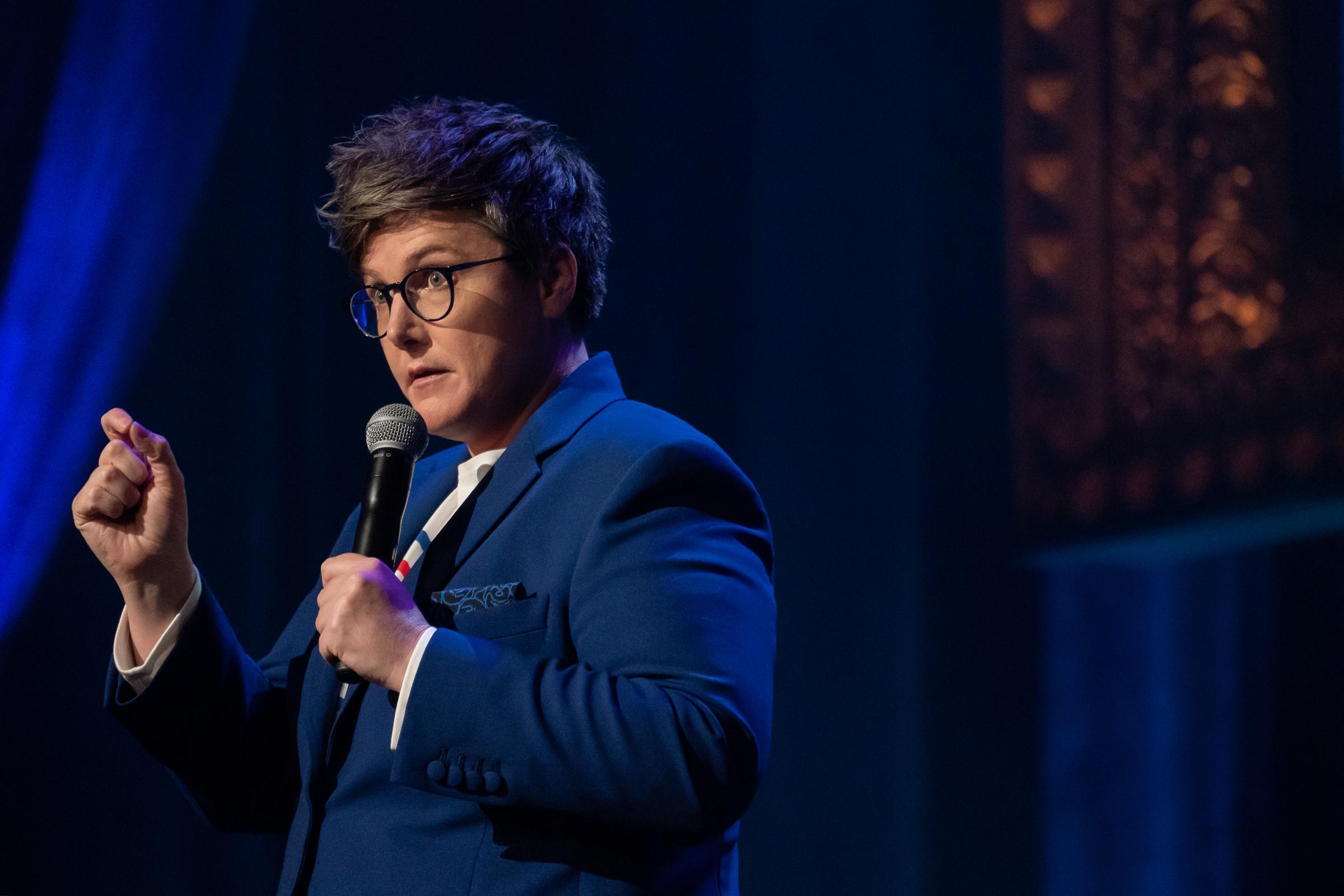
Her critics latched on to this tone as well as the special’s dark content, protesting that Nanette shouldn’t be classified as comedy. Douglas takes up the latter accusation in earnest. Of course not everything in Nanette was supposed to be funny, Gadsby tells the crowd: “I turned the laugh tap off myself. It was a decision. I stand by it. It’s not like I got halfway through the show and though: ‘F-ck, I’m out of jokes, I’ll tell a sad story.’” Elsewhere, she launches into a self-consciously shrill rant about men—just, she says, to bait her haters. The problem with this stuff isn’t that it’s not funny (although it isn’t) so much as that it isn’t insightful or challenging in the way that her other material can be. It’s self-absorbed. It protests too much.
I don’t think comedy specials that address serious themes, in tones that are also sometimes serious, are the problem. Stand-up is a relatively young art form, and there are only so many ways to stand in front of a microphone and deliver punchlines. More fluidity between the worlds of stand-up, spoken word, storytelling, theater, and music should only be daunting to genre purists—who, frankly, need to lighten up. The rest of us get to spend time with work that defies expectations, from Nanette to Chappelle’s blistering response to the murder of George Floyd, 8:46, to Bo Burnham’s Inside. Earlier this month, HBO unveiled Jerrod Carmichael’s Rothaniel, a deeply personal special directed by Burnham that plays like a conversation and a confession, studded with very funny jokes, about the contradictions of being a gay, Black man coming out in his mid-30s.
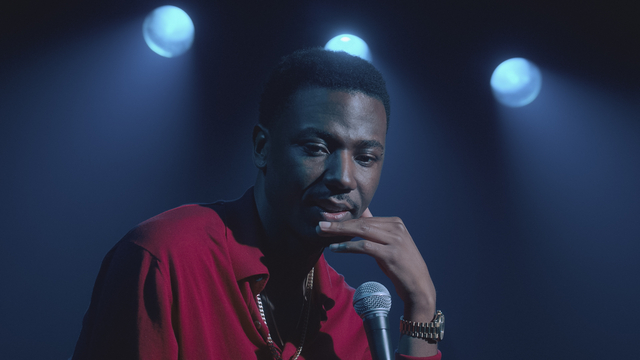
For more of TIME’s culture coverage, subscribe to our entertainment newsletter, More to the Story, by clicking here.
I don’t believe, either, that the woke wars are at the core of comedy’s current crisis. What I see is an elite tier of highly paid, internationally known comics who can’t seem to accept the fact that the privilege of performing for an audience of millions—and being treated as not just an entertainer, but a thought leader—carries with it the burden of subjecting yourself to public scrutiny. Self-deprecation has gone out of style in stand-up. (For Gadsby, the choice, which she describes in Nanette, was a conscious one.) Now, there’s precious little space left for introspection or humility or self-doubt. Meanwhile, the epidemic of controversy-courting smugness has been exacerbated by a content-hungry streaming industry that incentivizes comedians to insert themselves into the news cycle. When one of their names trends on Twitter, that’s free advertising for the comic and the platform that releases their specials. No wonder Netflix doubled down on its support for Chappelle.
This is all a shame, because vulnerability goes a long way toward defusing the anger directed at people who tell jokes. Why has Larry David—a 74-year-old straight, white guy who never met a piety he didn’t want to puncture—thrived for long enough to charm millennials and Gen Z? Because his jokes about other people rarely overshadow his jokes at his own expense.
There’s a difference between using your platform to wring laughter out of the human folly in which we all participate every day and using it to fight petty battles against the haters. Comics who position themselves as infallible are always going to catch hell for ripping into others. “Who are these perfect people that we have in America now?” Maher demands in #Adulting, during a riff on the supposed cancellation of Aziz Ansari. “So many perfect people who never make a mistake, never do anything wrong, yet get to judge your date.” Comedian, heal thyself.
More Must-Reads from TIME
- Cybersecurity Experts Are Sounding the Alarm on DOGE
- Meet the 2025 Women of the Year
- The Harsh Truth About Disability Inclusion
- Why Do More Young Adults Have Cancer?
- Colman Domingo Leads With Radical Love
- How to Get Better at Doing Things Alone
- Michelle Zauner Stares Down the Darkness
Contact us at letters@time.com